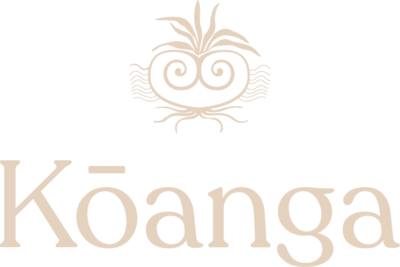Kōanga’s Beginning
Kōanga’s story begins in the early 1980s when founders Kay Baxter and Bob Corker moved from Auckland up to Bob’s family farm in Kaiwaka. Kay noticed that the wild fruit trees growing along the roadsides and around the Kaipara Harbour were healthier and more productive, with far better tasting fruit than anything from the varieties available in the Garden Centres.
Kay realised that these trees had been brought here by early settlers and that they were mostly neglected and dying out. This prompted her to start collecting these heritage fruit trees, and in the process also began to collect and realise the importance of their stories and their whakapapa.
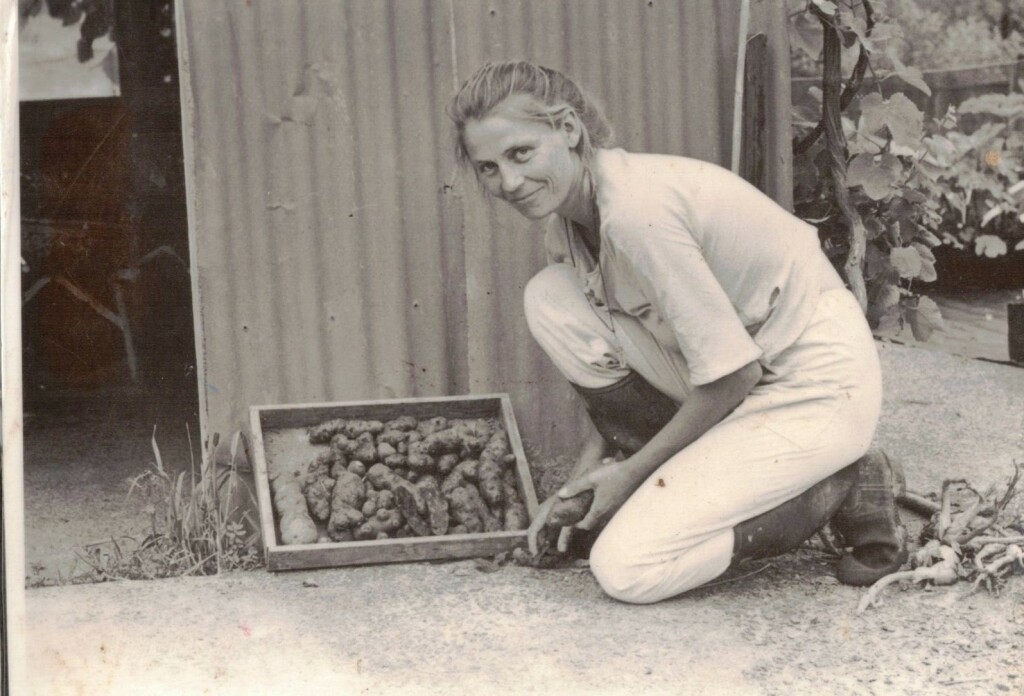
In 1986 the Chernobyl nuclear disaster occurred in Russia and through a series of coincidences Kay realised that almost all of the seed available in New Zealand came from Europe and was vulnerable to events unfolding over there. Around this time she was given some Dalmatian beans, a variety brought here by Dalmatian settlers, and saw the importance of these old seed varieties and their vulnerability, and so the mission to connect with old gardeners and to save these heritages seeds and their stories began.
The other thread to Kōanga’s origin story is more personal and relates to significant health challenges that Kay was facing. The lack of availability of quality, health supporting food meant Kay was growing most of the food for her family and then came the realisation, a gut feeling initially, that these home grown heritage varieties nourished her in a way that store bought food never had and that the heritage varieties were hugely superior to home grown food from commercial seed.
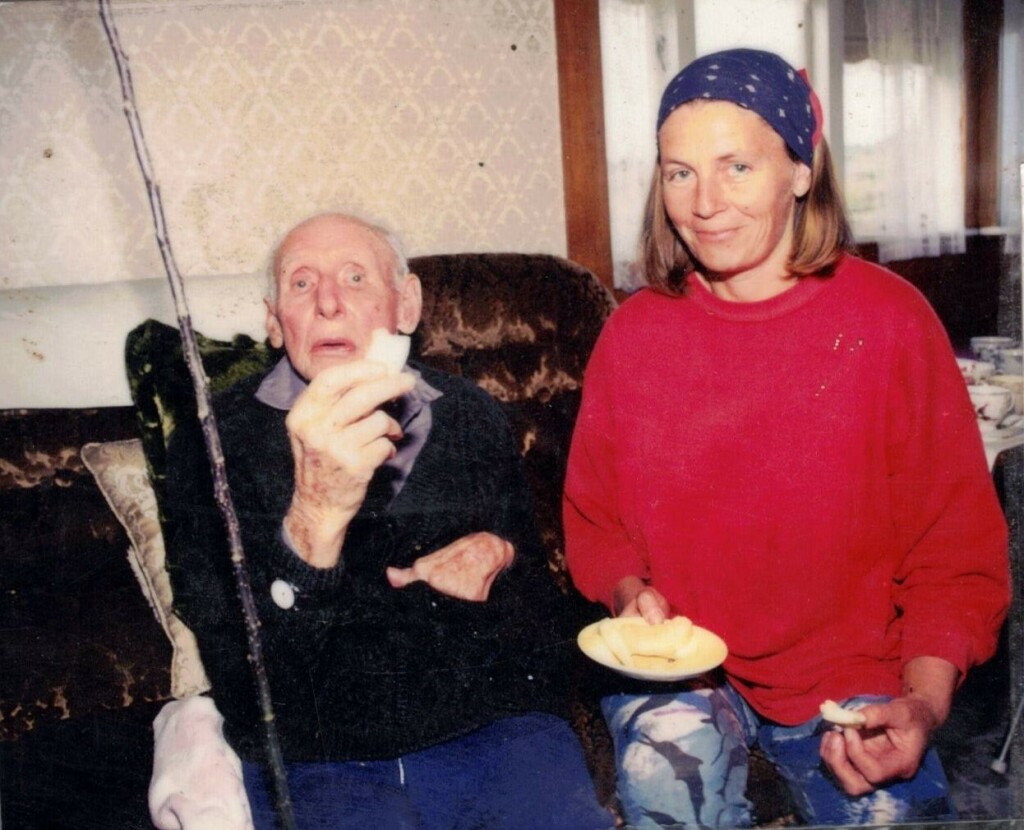
And so the journey began, interconnecting human health with heritage seeds and plants and a healthy environment as had been the case for earlier generations.
Our Name
At the time of us starting our nursery we decided to approach Willie Paul, a good friend and a kaumatua from Takou Bay, to discuss possibilities. Willie suggested Kōanga, meaning – new beginnings, new growth, Spring time. We really resonated with the ‘new growth’, ‘new beginnings’ in terms of our search and intention to be part of the solution, a part of finding a new way forward, one with different values and shapes to the mainstream we found ourselves in..so for us it was a ‘new beginning’. We still remember our first nursery catalogue, with the peach blossoms drawn by Terry Fitzgibbon,, a symbol of the new growth and new beginnings!!!. It was a peach tree that began this whole journey, our dog kennel peach which is now known as the River Peach. It was the old original peach that used to grow all around the Kaipara Harbour and Otamatea River where we were.
Initially the nursery was a private business, driven by our passion for the kaupapa, and a way of supplementing our income from an uneconomic farm. As it grew bigger we decided that the task of saving so many seeds was largely of a charitable nature and that it would make sense to legally incorporate it within a Trust. Initially this was named the Koanga Gardens Trust Inc. and later became the Koanga Institute Inc, to reflect our increasing emphasis on research and education.
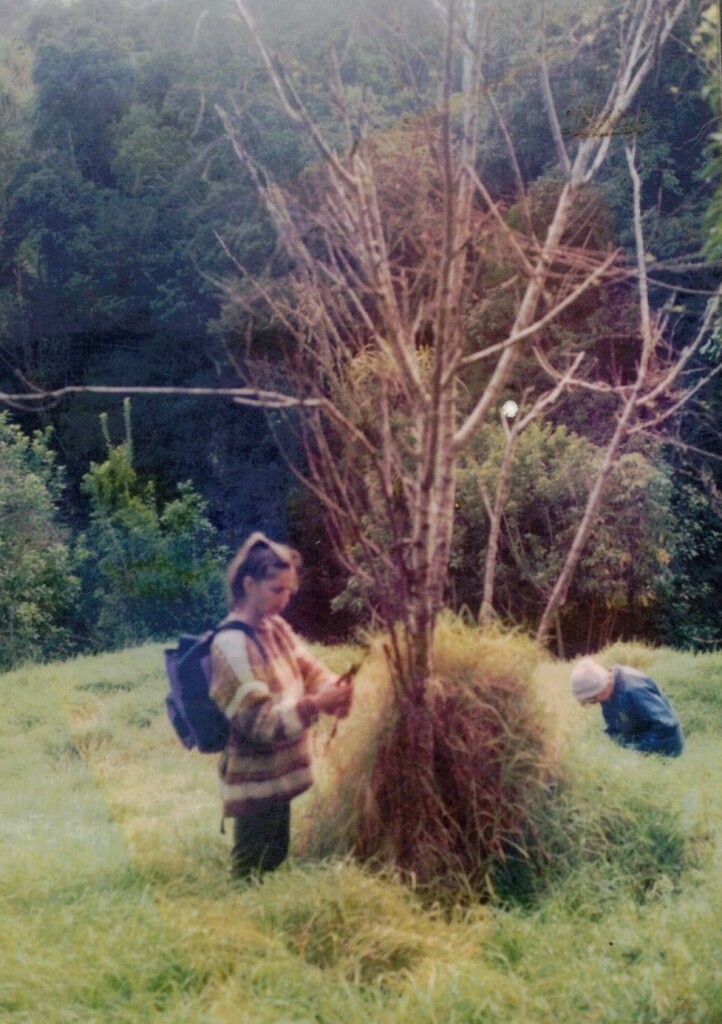
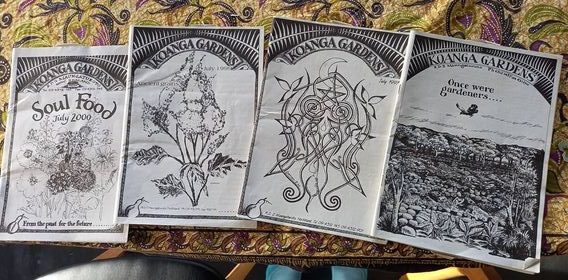
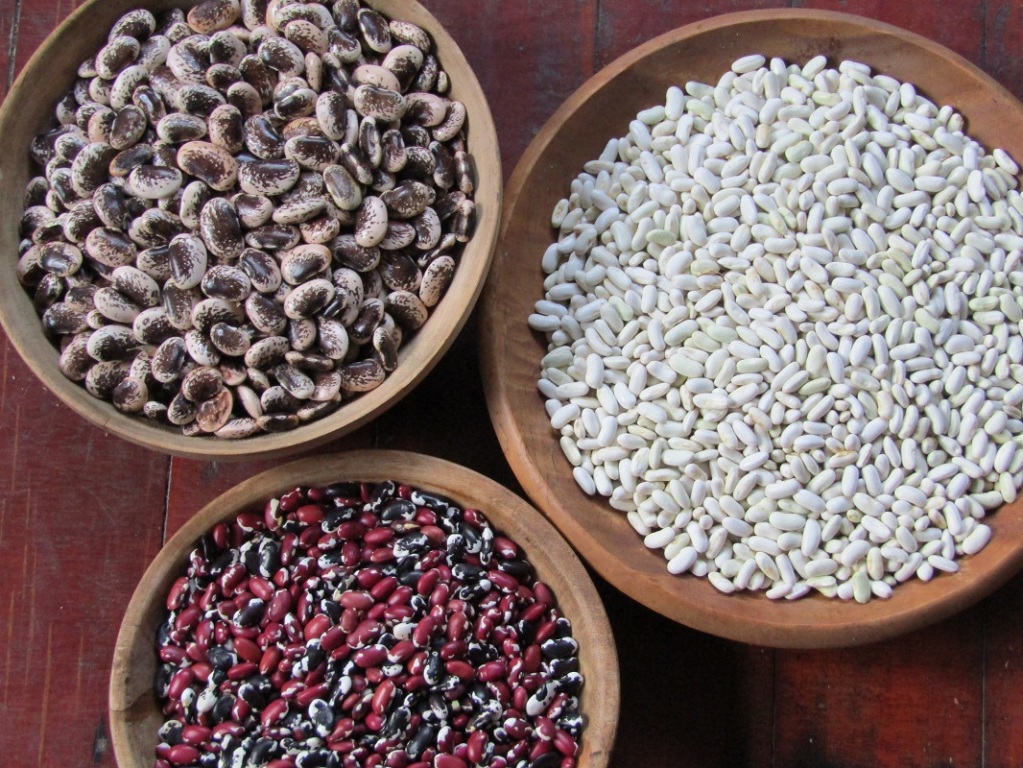
Our Development
Since Kōanga’s beginning the collection of heritage fruit trees, vegetable seeds, plants and their stories has grown and we now hold New Zealand’s largest collection of over 800 lines of NZ heritage vegetable seeds, and over 400 varieties of NZ heritage fruit tree and berries.
As Kōanga has developed so has our understanding of the importance of these heritage varieties of food plants and their ability to nourish us. Intertwined with this is the significance of how these plants are grown in order to maximise their health and the health of the people who eat them and to have a positive impact on the soil and on the earth. Our mission started as growing healthy plants using organic methods but along the way we realised the further need to grow regeneratively so that we are healing the earth as well.
Now, after decades of living with these seeds, of growing them in our food gardens, and of them being all that our children, and now grandchildren, know in their lives, we have come to understand just how critical they are for our future.
Saving these varieties, making them available to home gardeners and developing publications, website and workshops to share the knowledge that we have acquired are all key parts of the work that we do as is continuing to research and improve our growing methods and techniques.
In many ways the understanding of our kaupapa is increasingly becoming ‘mainstream’ with the wider acknowledgement of the importance of biodiversity, gut health and epigenetics, which is great confirmation for the ‘seed’ that we all grew. The vulnerability of heritage lines of seeds and trees is now more widely known with estimates that between 70 and 90% of food crop varieties have been lost since 1900. The importance of biodiversity is also more accepted and the lack of a biodiverse range of food crops is beginning to be accepted as a threat as we move into an uncertain future due to climate change.
The emerging science around health and nutrition has also validated those gut feelings that this food nourishes us more fully than store bought, commercially produced food. Studies show that heritage varieties contain more nutrients than modern varieties and the new science of epigenetics shows us that our own heritage food plants communicate with our DNA more clearly than somebody else’s food, and that for our DNA to remain intact and not deteriorate we need certain levels of minerals and vitamins etc. The only food plants we have that were selected and held and grown to nourish us are those we co evolved with, our heritage food plants. They are our ancestors gift to us, they are our most precious taonga.
In 2011 Kōanga moved to its current location near Wairoa in Hawkes Bay and has now established extensive seed gardens, a tree nursery and forest gardens.
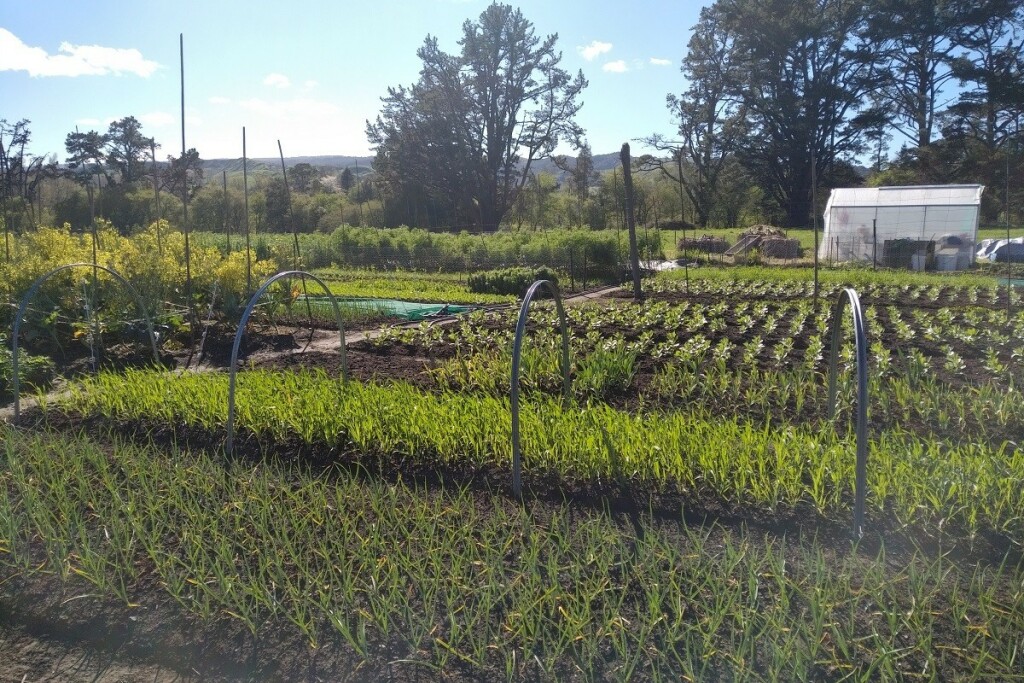
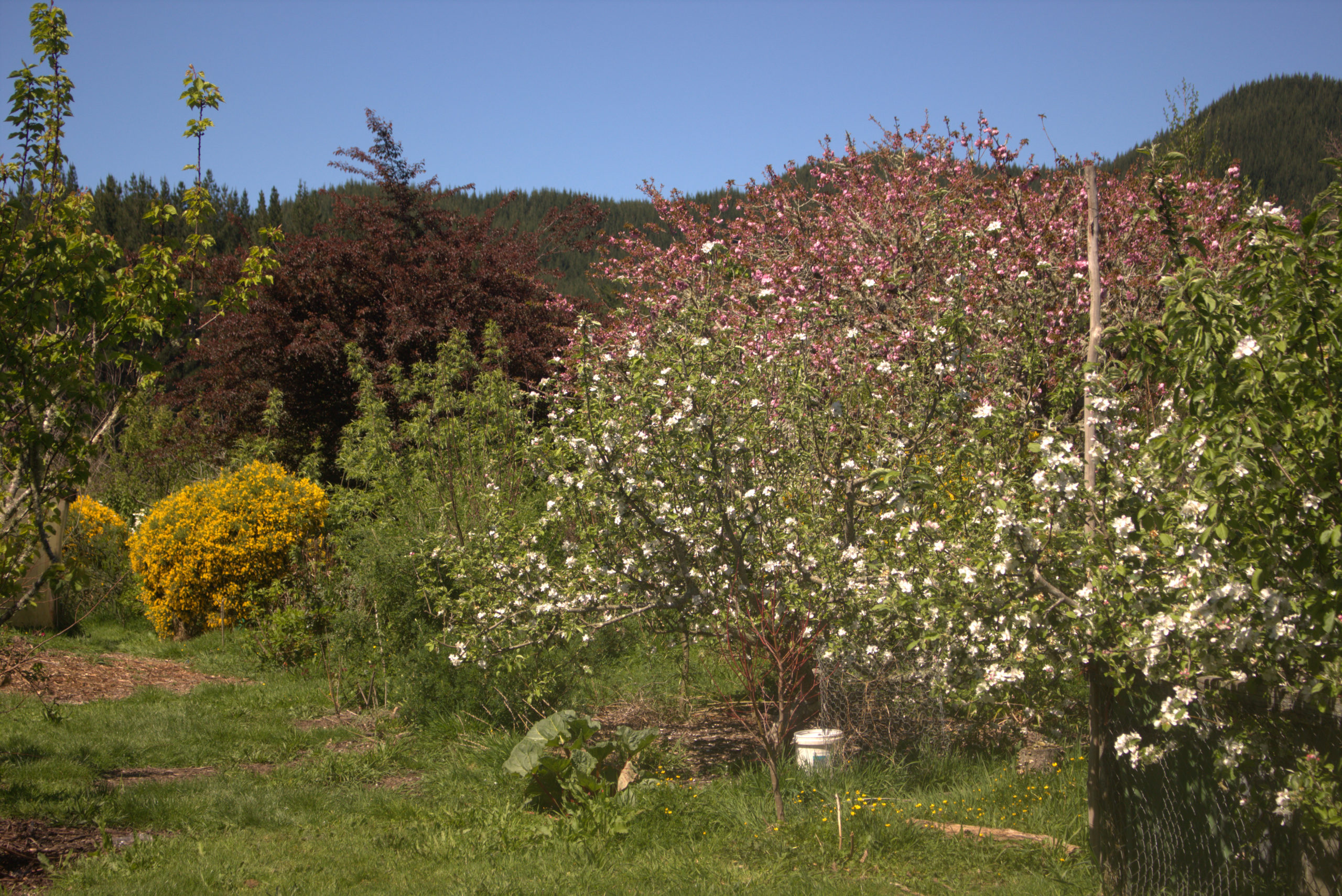
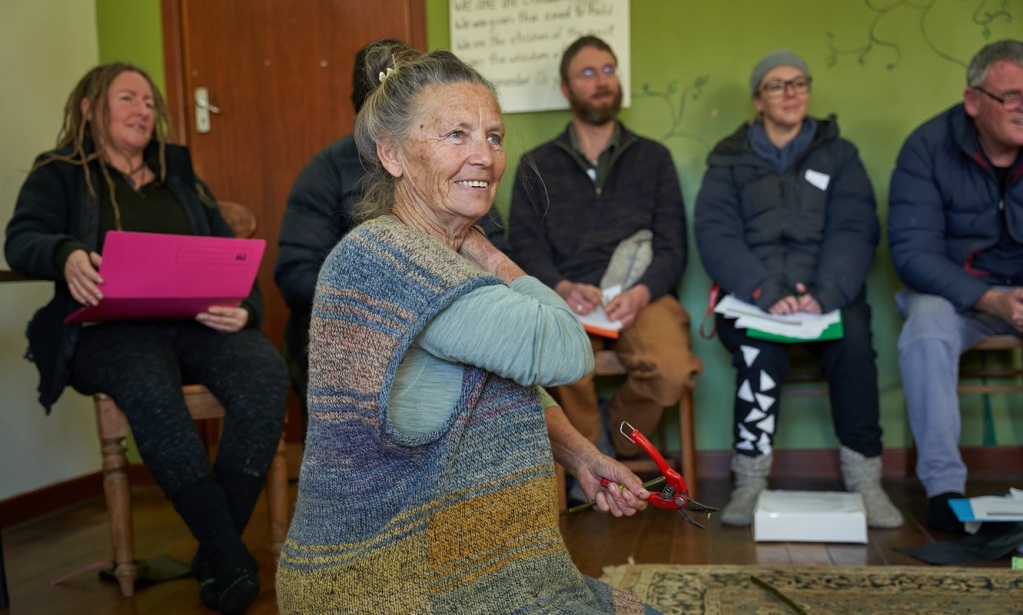
Our Future
As humanity faces the multiple challenges of our time including health crises, biodiversity collapse, environmental degradation and climate change, these precious heritage seeds and plants and Koanga’s mission to not only save them, but to learn and teach how to grow them regeneratively, is more important than ever.
We are in the process of creating models on many scales to what regenerative systems look like for us here, as well as scaling up our seed production so that our heritage seeds become the seeds the food of the future is grown from in this land.
